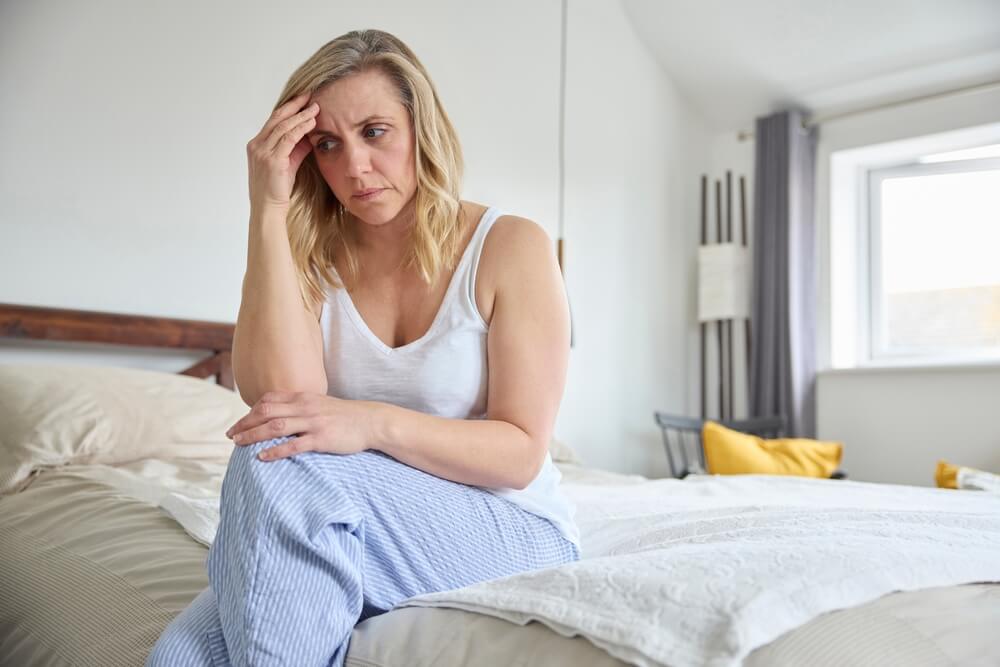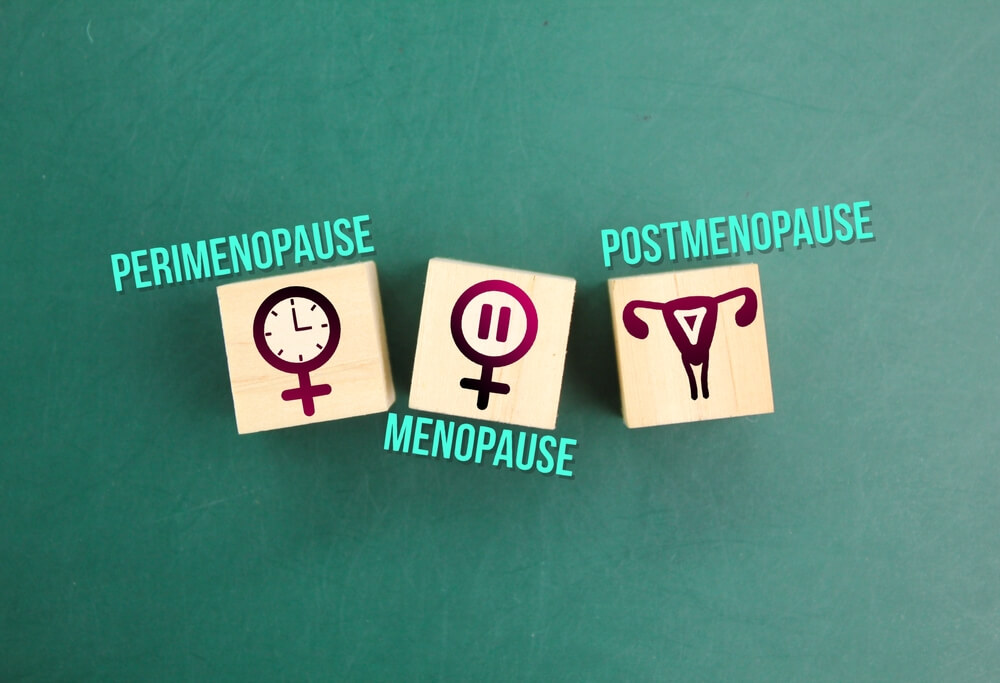Menopause is a natural biological process, the part of aging for women, marking the end of our fertility. Though menopause generally begins between the ages of 45-55, the average age is 51.
Your age at menopause is officially defined as 12 months after your last period. Some women enter menopause prematurely before age 45 and others during the expected 45–55-year-old time period. Numerous studies have confirmed the role of maternal genetics in determining your age at menopause with your mothers age of menopause being the best indicator of when you will go through menopause. Though there are risk factors that can affect your age at menopause such as chemotherapy, smoking, and weight, every woman with ovaries will go through menopause at some point.
At the Center for Gynecologic Oncology, we specialize in the diagnosis and treatment of the symptoms of menopause. Call (954) 602-9723 to schedule your appointment today in any of our five locations, Hollywood, Homestead, Miramar, Margate and Plantation.
What is perimenopause?
The transition period before menopause is referred to as perimenopause. Some women experience perimenopause for years and others for a short period of time. During perimenopause, the ovaries gradually produce less estrogen, which is the primary female hormone responsible for regulating the menstrual cycle.
Perimenopause typically lasts for a few years, but it can vary from person to person. It officially ends when a woman has gone 12 consecutive months without a menstrual period, at which point she has reached menopause.
If you suspect you are experiencing perimenopause or have concerns about the symptoms you are encountering, it is advisable to consult with a gynecologist who specializes in the management of menopause symptoms. Your gynecologist can help provide guidance, offer treatments to alleviate your symptoms and address any specific concerns you may have.
Irregular bleeding or bleeding AFTER menopause should always be evaluated IMMEDIATELY.
What are the typical symptoms of menopause?
All women experience menopause differently. The severity of symptoms can vary as well. Some women go through perimenopause and others experience an abrupt cessation of menses. The one definitive symptom that all women experience is that eventually, your period will cease altogether.
While the classic symptom of menopause is hot flashes, there are a wide variety of other symptoms that can indicate you are in menopause. Your symptoms may last for months or years or you may have no symptoms at all. Lifestyle factors may be a factor in the length of your symptoms but there is no standard beginning or end.

What are the most common symptoms of menopause?
Irregular periods: One of the more common signs of menopause is an irregular period. Your period may be unpredictable, longer or shorter than previously. It may stop abruptly or gradually disappear.
Hot flashes/Night sweats: A hot flash is an intense sensation of heat that can cause you to sweat or your face to flush during the day. It may or may not be accompanied by a cold sweat. When a hot flash occurs at night, it is referred to as a night sweat.
Mood swings: Fluctuating hormone levels can lead to a host of factors that affect your mood and trigger anxiety and or depression.
Sleep issues: Many women experience sleep disturbances such as insomnia and night sweats, and during perimenopause and menopause. Insomnia can heighten mood swings and cause fatigue.
Vaginal dryness: As estrogen levels decrease the vaginal tissue begins to thin and secretions decrease. This can cause vaginal dryness and itching.
Urinary tract infections: During menopause the tissue around the urethra can thin and change, making it more hospitable to bacteria and this can cause an increase in the number of urinary tract infections that you experience.
Decreased libido: As testosterone levels decrease in menopause, so does your libido.
Painful intercourse: Vaginal dryness and thinning can make intercourse painful.
Every woman’s ovaries will stop producing estrogen. Each woman reacts to that loss and subsequent menopause differently. That is why we personalize each woman’s treatment.
How is menopause diagnosed?
Am I in menopause? is probably one of the more frequent questions asked of our medical practitioners.
The answer is generally based by having a conversation with your gynecologist. The cessation of your period for 12 months as well as other signs and symptoms are usually sufficient for your doctor to determine if you are in perimenopause or menopause.
At times your physician may order a blood test to determine your levels of Follicle-Stimulating Hormone (FSH) or estrogen. During menopause, your estrogen levels decrease and your FSH levels increase.
There is no official treatment for menopause. Rather our goal is to focus on your symptoms, minimize any discomfort and maximize your quality of life through medical treatments, lifestyle modifications, or a combination thereof.
Here are some of the medical treatments available to reduce the symptoms of menopause:
- Hormone Replacement Therapy (HRT): This treatment involves taking estrogen and, in some cases, progesterone to replace the hormones that decline during menopause. HRT is highly effective in reducing hot flashes, night sweats, vaginal dryness, and improving mood. However, it may have some associated risks, so it’s important to discuss the benefits and risks with your healthcare provider.
- Low-dose antidepressants: Certain antidepressant medications, such as selective serotonin reuptake inhibitors (SSRIs) or serotonin-norepinephrine reuptake inhibitors (SNRIs), have been found to effectively reduce hot flashes and improve mood during menopause.
- Veozah: Approved by the FDA in May 2023, Veozah is an oral medication that has proven to be effective in the treatment of hot flashes. It is an excellent choice for women who cannot take hormone therapies.
- Gabapentin: Originally developed to treat seizures, gabapentin has been found to reduce hot flashes in some women. It may also help with sleep disturbances associated with menopause.
- Vaginal estrogen: For women experiencing vaginal dryness and discomfort during intercourse, vaginal estrogen in the form of creams, tablets, or rings can be applied locally to relieve symptoms.
Ospemifene: This medication is specifically used to treat painful intercourse due to vaginal dryness. It works by acting like estrogen in the vaginal tissues.
It’s important to note that the suitability of these treatments may vary from person to person, and it’s recommended to consult with a menopause specialist to determine the most appropriate treatment based on your individual circumstances and medical history.
Medical treatments may be helpful. But the addition of lifestyle changes can also be effective:
- Eat a balanced diet: Incorporating lean protein as well as fruit, vegetables, and whole grains can help you maintain a healthy weight and avoid weight gain often triggered by menopause.
- Keep cool: Wearing light clothing, dressing in layers, taking cool showers, and lowering the temperature on your thermostat can minimize discomfort from hot flashes and night sweats.
- Avoid potential triggers: Spicy foods, hot drinks, caffeine, smoking, red wine, and even stress can trigger hot flashes.
- Schedule regular exercise: Through cardiovascular and weight-bearing exercise and diet, you can avoid weight gain caused by menopause and improve your heart health.
- Increase your vitamin intake: The right balance of Calcium and Vitamin D can reduce your risk of osteoporosis.
- Reduce your stress level: Stress is a trigger for hot flashes and can interfere with your sleep. Try meditation, yoga or other relaxation techniques to reduce stress and improve your sleep.
Request an appointment to discuss which alternatives are best for you!
We are your advocates.
Your symptoms are “not just menopause.” There are treatments available that can reduce or eliminate hot flashes, increase vaginal moisture, help you sleep, and improve your quality of life.
At the Center for Gynecologic Oncology, we have seen firsthand how disruptive menopause can be. As board-certified gynecologist oncologists, we are dedicated to providing you with the most up-to-date medical and lifestyle treatments for menopause with the goal of offering you the best possible outcomes.
If you are experiencing symptoms of menopause or need help managing your menopausal symptoms, we are here to help.
Please call 954.602.9723 and schedule an appointment today at any of our five office locations in Hollywood, Homestead, Margate, Miramar, and Plantation.


